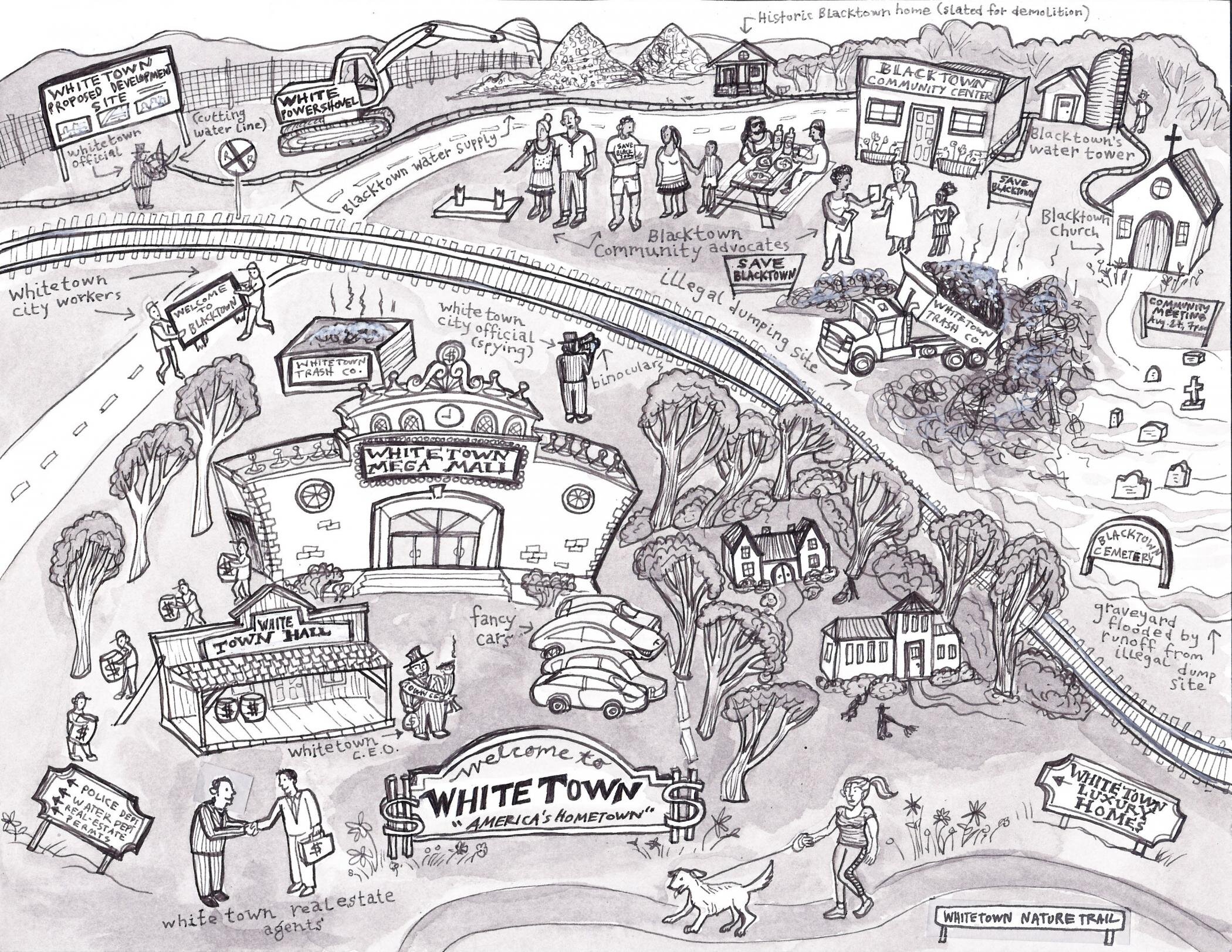Danielle Purifoy and Louise Seamster present their conceptual framework for understanding black towns within extractive white space, highlighting questions of citizenship, extraction, and exclusion as they focus on how legal, spatial, racial, and economic systems structure black spaces’ access to infrastructure and facilitate environmental violence.
After four years of tracking infrastructure access and local development challenges in Black-led communities and cities, Purifoy and Seamster found the framework of environmental racism provided inadequate explanation for the predictable cycles of dumping, stagnant development, and socio-ecological vulnerability experienced by Black places. More than the simple result of white NIMBYism and anti-Blackness, these cycles were instrumental to the development of white places. Creative extraction is a race-relational development framework that describes how white towns catalyze their own growth with resources from beyond their own borders, especially from Black places. Purifoy and Seamster explain creative extraction in two articles supported by the Buell Center’s "Power: Infrastructure in America" project—“What is Environmental Racism For?” in Environmental Sociology and “Creative extraction: Black towns in white space” in Environmental Planning D: Society and Space. The articles focus on the case of Tamina, Texas, an unincorporated Black community dating back to 1836, to demonstrate how mundane local development practices such as municipal utility districts, planning jurisdictions, and sales tax structures are routinely used to leverage the value and resourcefulness of white places at the expense of Black places. In this conversation, Seamster and Purifoy will discuss how their individual research on seemingly disparate Black places—rural Black-founded towns and urban majority Black cities—led to a series of inquiries culminating with creative extraction.
Purifoy and Seamster's work combines an environmental focus with data and frameworks from urban studies, fiscal sociology, geography, and law to show how these harms are not the result of discrete “racist” acts, but are written into the law itself, and are central to the functioning of racial capitalism. The speakers will be introduced by Reinhold Martin, Professor of Architecture and Director of the Temple Hoyne Buell Center for the Study of American Architecture at Columbia GSAPP.

